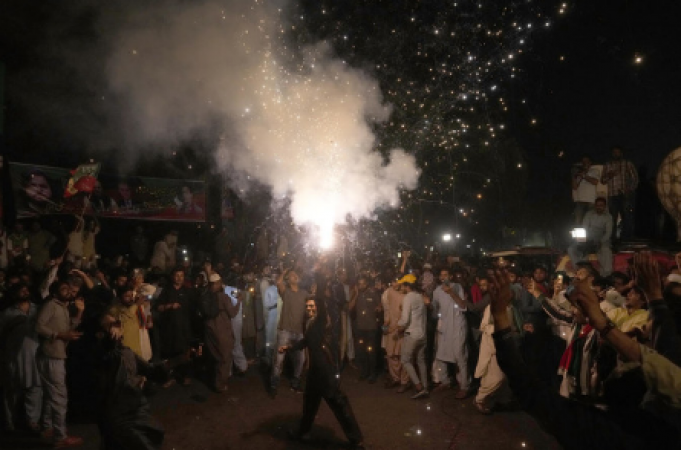
Islamabad: The detention of his predecessor, Imran Khan, prompted violent protests, and Pakistan's prime minister declared on Saturday that those responsible would be pursued by the government, including through prosecution in anti-terrorism courts.
The long-running conflict between the government and Khan, who has the support of many people, may have escalated with Shahbaz Sharif's warnings.
After a court decided to prevent Khan from being arrested again for another two weeks, he made his way back to his house in the eastern city of Lahore early on Saturday. A televised speech from the former cricket star, who is now 70 and was overthrown by parliament a year ago, was scheduled to be given later on Saturday.
Also Read: Sri Lanka wants to strengthen its bilateral relations with Saudi Arabia
Khan was arrested in Islamabad on Tuesday after being dragged out of a courtroom, which set off the recent series of events. His supporters violently protested his detention, torching vehicles and structures, including military installations. Hundreds were detained as a result.
Khan was freed on Friday, but he still faces more than 100 court cases related to allegations ranging from inciting violence to corruption. Khan claimed on Friday that the only reason the authorities let him travel was because of his threat to inform the public that he was being held there against his will.
Also Read: Estonian defence forces get ready for the NATO-led Spring Storm exercise
On Saturday, Sharif vowed to pursue those responsible for torching the military corps commander's Lahore home.
He informed officials in Lahore that "the culprits including the planners, abettors, and attackers" would be tried in anti-terrorism courts. To expedite the proceedings, Sharif directed the Law Ministry to increase the number of anti-terrorism courts.
Khan and the administration that replaced him are at odds, and he claims the accusations against him are made for political reasons. Sharif claims Khan is the subject of a "genuine corruption case," but the judiciary "has turned into a stone wall protecting him."
Several locations across the nation held protests on the day of Khan's arrest, which also saw violence. Protesters brandishing batons broke through the main gate of the military's general headquarters in Rawalpindi's garrison city.
Also Read: 200,000 people are displaced by flooding in Somalia
Additionally, in the northwest city of Peshawar, protesters torched the Radio Pakistan building, which also served as the headquarters of the state-run news agency Associated Press of Pakistan.
Rana Sanaullah, the interior minister, claimed on Saturday that armed attackers were responsible for the attacks on military facilities and government structures, rejecting the notion that the incidents were the result of unplanned demonstrations.
Khan has a sizable fan base in Pakistan. He portrays himself as an outsider who has been wronged by the political and military dynasties that have long controlled the government. Meanwhile, his detractors portray him as a violent demagogue inciting his supporters to violence.